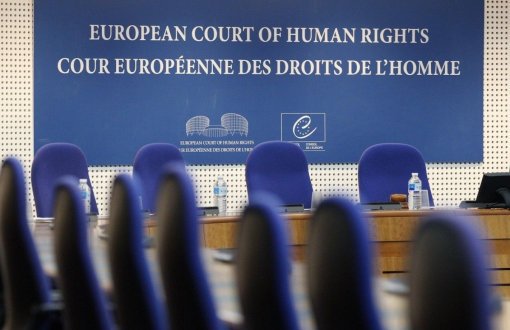Click to read the article in Turkish
The European Court of Human Rights (ECtHR) handed down its judgement regarding the application of main opposition Republican People's Party (CHP) Chair Kemal Kılıçdaroğlu today (October 27).
The ECtHR has unanimously concluded that the freedom of expression of the politician has been violated by the damages that he was sentenced to pay to President and ruling Justice and Development Party (AKP) Chair Recep Tayyip Erdoğan in Turkey.
Indicating that the Article 10 of the European Convention on Human Rights (ECHR) has been violated, the ECtHR has ruled that Kemal Kılıçdaroğlu shall be paid 13 thousand euros (~125,000 TRY) in damages.
Kılıçdaroğlu sentenced to pay damages, again
However, in another ruling given in Turkey today, Kılıçdaroğlu has been sentenced to 20 thousand TRY in non-pecuniary damages over his remarks about Ahmet Özel, the attorney of President Erdoğan.
The 4th Legal Chamber of the İstanbul Regional Court of Justice, the court of appeals, has handed down its ruling regarding the appeal against the verdict given by the local court, the Bakırköy 8th Civil Court.
In his petition to the court, lawyer Ahmet Özel referred to a speech by Kılıçdaroğlu at the CHP weekly group meeting on November 21, 2017 and claimed that, in this speech, the politician argued that Erdoğan and his relatives had transferred money abroad and, in another speech, he made accusations against his clients by alleging that he proved the money transfer.
The ruling of the court of appeals has indicated that the remarks of Kılıçdaroğlu in the related speech violated the personal rights of Ahmet Özel and overstepped the boundaries of freedom of expression.
'It is particularly important for an MP'
In its judgement dated today, the ECtHR has elaborated on the background of the application and its judgement as follows:
"The case concerned a civil judgment ordering Kemal Kılıçdaroğlu, leader of the main opposition party, to pay compensation for tarnishing the reputation of the then Prime Minister, Recep Tayyip Erdoğan, on account of remarks made by him in two speeches delivered in 2012 on the parliamentary estate.
"The two speeches concerned matters of general interest which were related, in particular, to court cases dealing with allegations of abuse of trust, a human tragedy caused by Turkish air-force bombing and the construction of hydroelectric power stations.
"It had thus been natural for the Prime Minister, as a high-ranking politician, to have his words and deeds closely scrutinised by one of his main political rivals. Moreover, the two speeches concerned topical issues; they had not directly targeted the Prime Minister's private life; and they had been based on certain factual elements.
"Mr Kılıçdaroğlu had given the speeches as a member of parliament within the parliamentary precincts. In this connection the Court reiterated that, while being precious for everyone, freedom of expression was particularly important for an elected representative of the people.
Emphasis on 'public interest'
"The Court found that some of the expressions used by Mr Kılıçdaroğlu in the context of his opposition to the Prime Minister consisted of harsh attacks with an antagonistic tone.
"Even though the 'contempt' contained in certain remarks could not be overlooked, those remarks could rather be seen as provocative, intended to foster controversy about the political position allegedly adopted by the Prime Minister. They could also be recognised as the type of political invective used by politicians in the course of their debates.
"The Court took the view that the role of the domestic courts in such proceedings was not to tell the applicant what style he should have adopted in exercising his right to criticise, however caustic his remarks, but rather to examine whether the context of the case, the public interest and the intention of the person who made the remarks justified the possible use of a degree of provocation or exaggeration.
'It could deter others from criticizing politicians'
"The Court lastly noted that the amount of the compensation that the applicant had been ordered to pay was significant and capable of deterring others from criticising politicians in the context of a debate on a question of public interest.
"The Court thus found that the domestic courts had not given due consideration to the principles and criteria set out in the Court's case-law in order to strike a fair balance between the Prime Minister's right to respect for his private life, on the one hand, and Mr Kılıçdaroğlu's right to freedom of expression, on the other."
What happened?
On January 31 and February 7, 2012, Kemal Kılıçdaroğlu made speeches at a meeting of his party's parliamentary group. Those speeches dealt with various topical issues, including court decisions convicting protesters who had staged actions against the Tortum hydroelectric power station projects in Erzurum province, the Deniz Feneri court case, the event of Uludere, and a case before the Supreme Administrative Court. In his two speeches Mr Kılıçdaroğlu criticised Erdoğan, the then Prime Minister.
On March 1, 2012, Erdoğan brought two civil actions for damages against Kılıçdaroğlu, claiming that his personal and professional honour and reputation had been tarnished. On October 23, 2012, the Ankara District Court handed down two judgments ordering Kılıçdaroğlu to pay 5,000 Turkish liras in each set of proceedings for the non-pecuniary damage caused to the Prime Minister's reputation.
Kılıçdaroğlu's appeal on points of law was rejected and his individual application to the Constitutional Court resulted in a ruling that his right to freedom of expression had not been violated.
He appealed to the ECtHR in 2018, claiming that his freedom of expression as guaranteed by the Article 10 of the ECHR was violated. (AS/SD)





